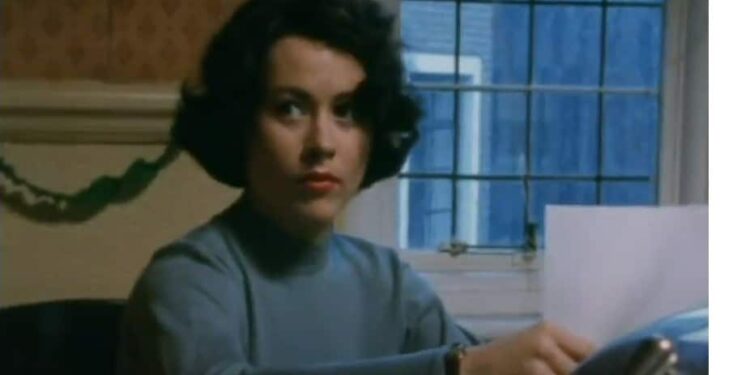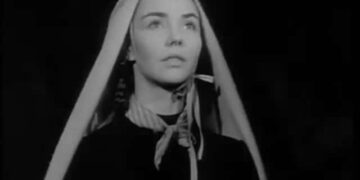‘Anglo-Saxon Attitudes’ is a captivating exploration of British society in the post-war era. First immortalized in ink by Angus Wilson, the story was later brought to life on screen in a popular TV series. A symbol of the changing attitudes and cultural shifts, it offers a rich tapestry of compelling characters and intricate plotlines.
This piece of work is not just a story; it is a social commentary that subtly highlights the prejudices, hypocrisies, and the class system of the mid-20th century Britain. The multi-layered narrative is a testament to Wilson’s keen eye for detail and his ability to portray society with unflinching honesty.
Whether you’ve read the book or watched the TV series, ‘Anglo-Saxon Attitudes’ is a story that lingers long after you’ve turned the last page or watched the final scene. It’s a classic that continues to intrigue, provoke discussion, and offer fresh perspectives.
‘Anglo-Saxon Attitudes’ Book Summary
In the heart of the tale is the protagonist, Gerald Middleton. A history professor in his sixties, Gerald is haunted by an archaeological hoax he was involved in during his youth. The discovery of a pagan idol in the tomb of a seventh-century bishop shakes the foundations of the Church and academia.
Gerald’s life unravels as he grapples with the guilt of his past actions and the complexities of his personal life. His relationship with his wife, Inga, and his three adult children is fraught with tension and misunderstandings.
The book is an intricate portrayal of Gerald’s journey of self-realisation, as he attempts to reconcile his past and present. It’s a layered narrative that delves into the complexities of human nature and the societal norms of the time.
TV Series Summary of ‘Anglo-Saxon Attitudes’
The ‘Anglo-Saxon Attitudes’ TV series brilliantly captures the essence of Angus Wilson’s novel. The three-part series, which aired in 1992, stars Richard Johnson as Gerald Middleton. The series remains true to the original narrative, deftly portraying the complex characters and enthralling plotlines.
The series begins with the archaeological excavation and the discovery of the idol, setting the stage for the unfolding drama. Gerald’s life, both past and present, is skilfully woven into the narrative, offering viewers a captivating portrayal of his struggles and triumphs.
While the TV series encapsulates the essence of the book, it also adds its unique nuances, enhancing the storytelling with a visual impact that complements the written word. The series is a must-watch for anyone who appreciates nuanced storytelling and rich character development.
Setting Timeline: Where and When
‘Anglo-Saxon Attitudes’ is set in post-war Britain, spanning several decades from the 1920s to the 1950s. The story unfolds in various locations, from the academic circles of London to the countryside manor houses.
The different settings and timelines add depth to the narrative, providing a vibrant backdrop for the unfolding drama. The shifting landscapes reflect the changes in society and the characters, underlining the central theme of evolving attitudes.
Who’s Who in ‘Anglo-Saxon Attitudes’
‘Anglo-Saxon Attitudes’ boasts a rich array of characters, each with their unique quirks and personality traits. A few of the key characters include:
- Gerald Middleton: The protagonist, a retired history professor grappling with personal and professional issues.
- Inga Middleton: Gerald’s wife, a Swedish woman with a fiercely independent spirit.
- Dollie: Gerald’s lifelong love interest, a complex character with her own set of issues.
- Robin Middleton: Gerald and Inga’s rebellious son, who challenges societal norms.
Each character plays a vital role in the narrative, adding different dimensions to the story and shaping the course of events.
Guest Stars in the ‘Anglo-Saxon Attitudes’ TV Series
The ‘Anglo-Saxon Attitudes’ TV series featured an impressive lineup of guest stars, including Tara Fitzgerald, Douglas Hodge, and Elizabeth Spriggs. Their performances added a new depth to the characters, bringing them to life on screen and capturing the viewers’ imagination.
Memorable Quotes from ‘Anglo-Saxon Attitudes’
‘Anglo-Saxon Attitudes’ is peppered with memorable quotes, each encapsulating the essence of the characters and the era. A few examples include:
- “The trouble with you, Gerald, is that you’ve never known what you really want.”
- “Life isn’t a matter of milestones, but of moments.”
- “We are all prisoners of our past, but the key is within us.”
These quotes offer a glimpse into the profound wisdom and wit that permeate the pages of ‘Anglo-Saxon Attitudes’.
The Soundtrack by Colin Towns
The soundtrack of ‘Anglo-Saxon Attitudes’ perfectly captures the essence of the story, with its haunting melodies and evocative arrangements. Each piece of music is carefully selected to complement the mood and atmosphere of the scenes, drawing viewers deeper into the narrative. From the melancholic piano compositions to the soaring orchestral scores, Towns’ soundtrack adds a layer of emotional depth to the story, making it even more engaging and memorable.
One of the standout tracks from the soundtrack is ‘The Forgotten Garden,’ which plays during the climactic final scene of the series. This powerful piece builds tension and suspense, perfectly mirroring the intensity of the moment. Another notable track is ‘Lost Memories,’ a hauntingly beautiful melody that captures the bittersweet nostalgia of the characters’ pasts. Towns’ ability to create such evocative music truly showcases his talent and adds another dimension to the ‘Anglo-Saxon Attitudes’ TV series.
Cosplay Guide: Dress like Gerald Middleton and Young Gerald
If you’re a fan of the ‘Anglo-Saxon Attitudes’ TV series and want to immerse yourself in the world of the characters, why not try cosplaying as Gerald Middleton or Young Gerald? These two central characters have distinctive styles that can be easily recreated for your next costume event or convention.
To dress like Gerald Middleton, you’ll need a few key items. Start with a classic tweed suit in earthy tones, paired with a crisp white shirt and a patterned tie. Add a pair of round spectacles and a pocket watch for a touch of sophistication. Don’t forget to tousle your hair slightly for that disheveled yet distinguished look that Gerald Middleton is known for. With these elements, you’ll be able to channel the essence of this complex character and showcase your love for ‘Anglo-Saxon Attitudes.’
Young Gerald, on the other hand, has a more casual and rebellious style. Opt for a leather jacket, worn over a graphic t-shirt and fitted jeans. Complete the look with a pair of boots and a beanie hat for a touch of youthful flair. Young Gerald’s fashion sense reflects his free-spirited nature and adds a contemporary edge to the ‘Anglo-Saxon Attitudes’ TV series.
Cosplaying as Gerald Middleton or Young Gerald is not only a fun way to pay homage to the characters you love, but also a way to showcase your creativity and passion for the series. So, don your chosen costume and embrace the spirit of ‘Anglo-Saxon Attitudes’ at your next cosplay event.
Angus Wilson: Bio and His 5 Best Works
Angus Wilson, the acclaimed British author, was the mastermind behind the novel ‘Anglo-Saxon Attitudes’ which inspired the TV series of the same name. Born in 1913, Wilson made significant contributions to the literary world with his insightful and thought-provoking works. Here is a brief biography of Angus Wilson, along with a list of his five best works.
Born in Bexhill-on-Sea, England, Angus Wilson had a diverse background that greatly influenced his writing. He studied at Merton College, Oxford, and later served in the British Intelligence Corps during World War II. After the war, Wilson pursued a career in academia, teaching English literature at various universities.
Wilson’s writing career took off with the publication of his first novel, ‘Hemlock and After,’ in 1952. This debut work showcased his sharp wit and keen observations of human nature. It was followed by other notable novels, including ‘Anglo-Saxon Attitudes’ in 1956, which remains one of his most celebrated works. Wilson’s writing often delved into themes of social class, sexuality, and the complexities of human relationships.
In addition to his novels, Wilson also wrote numerous short stories, plays, and critical essays. His versatility as a writer was evident in works such as ‘The Old Men at the Zoo’ (1961) and ‘As If By Magic’ (1973), which showcased his ability to seamlessly blend humor and social commentary.
Angus Wilson’s contributions to literature have left an indelible mark on the literary landscape. His works continue to captivate readers with their insightful portrayals of the human condition. Whether it’s the dark humor of ‘Anglo-Saxon Attitudes’ or the social satire of ‘The Old Men at the Zoo,’ Wilson’s writing remains relevant and thought-provoking.
Andrew Davies: Media Contributions and His 5 Best Works
Andrew Davies, the acclaimed British screenwriter and producer, played a pivotal role in bringing the ‘Anglo-Saxon Attitudes’ TV series to life. With a career spanning several decades, Davies has made significant contributions to the world of media. Here is an overview of his career, along with a list of his five best works.
Born in Cardiff, Wales, in 1936, Andrew Davies began his career as a teacher before transitioning into writing for television and film. His breakthrough came in the 1990s when he adapted classic literary works for the small screen. Davies’ adaptations were known for their faithfulness to the source material while adding a contemporary edge and capturing the essence of the original stories.
One of Davies’ most notable works is his adaptation of Jane Austen’s ‘Pride and Prejudice’ (1995), which catapulted him to international acclaim. The series, starring Colin Firth as Mr. Darcy, became an instant classic and is still beloved by audiences today. Davies’ ability to capture the wit and romance of Austen’s novel solidified his reputation as a master adapter.
In addition to ‘Pride and Prejudice,’ Davies has brought numerous other literary works to the screen, including ‘Bleak House’ (2005), ‘War and Peace’ (2016), and ‘Les Misérables’ (2018). His adaptations have received critical acclaim for their attention to detail, compelling storytelling, and memorable performances.
Davies’ talent for adapting complex narratives extends beyond the realm of classic literature. He has also written original screenplays, such as ‘A Very Peculiar Practice’ (1986) and ‘House of Cards’ (1990). These works showcase his ability to create compelling characters and explore the intricacies of human nature.
Andrew Davies’ contributions to the world of media have cemented his status as one of Britain’s most respected screenwriters. Whether it’s his faithful adaptations of literary classics or his original screenplays, Davies continues to captivate audiences with his storytelling prowess.
10 Similar Movies, TV Shows, and Books to ‘Anglo-Saxon Attitudes’
If you enjoyed the ‘Anglo-Saxon Attitudes’ TV series and are looking for similar content to dive into, here are ten recommendations that will satisfy your craving for intriguing narratives, complex characters, and thought-provoking themes.
- ‘Brideshead Revisited’ – This classic novel by Evelyn Waugh explores themes of class, religion, and forbidden love, much like ‘Anglo-Saxon Attitudes.’ It has also been adapted into a successful TV series.
- ‘The Line of Beauty’ – A novel by Alan Hollinghurst, ‘The Line of Beauty’ delves into the decadence and social dynamics of 1980s Britain, mirroring some of the themes explored in ‘Anglo-Saxon Attitudes.’
- ‘The Remains of the Day’ – Kazuo Ishiguro’s novel tells the story of an English butler reflecting on his life and the choices he made. It offers a similar exploration of class and regret as ‘Anglo-Saxon Attitudes.’
- ‘Atonement’ – Ian McEwan’s novel, later adapted into a film, weaves together love, guilt, and the repercussions of a single lie. It shares a similar sense of intrigue and complex storytelling with ‘Anglo-Saxon Attitudes.’
- ‘The Jewel in the Crown’ – This epic novel by Paul Scott, set during the final days of the British Raj in India, explores themes of colonialism, identity, and cultural clashes, making it a compelling read for fans of ‘Anglo-Saxon Attitudes.’
- ‘The Go-Between’ – L.P. Hartley’s novel tells the story of a young boy who becomes entangled in a web of secrets and betrayal during a scorching summer in the English countryside. It shares a similar atmosphere of mystery and hidden desires with ‘Anglo-Saxon Attitudes.’
- ‘The House of Mirth’ – Edith Wharton’s novel examines the social constraints and struggles of a young woman in early 20th-century New York. Its exploration of societal expectations and personal desires resonates with the themes of ‘Anglo-Saxon Attitudes.’
- ‘An Inspector Calls’ – J.B. Priestley’s play, set in the early 20th century, delves into the consequences of one family’s actions and the interconnectedness of society. Its examination of morality and guilt aligns with the themes explored in ‘Anglo-Saxon Attitudes.’
- ‘The Secret History’ – Donna Tartt’s novel follows a group of students at an elite college who become entangled in a web of secrets and murder. Its dark and atmospheric storytelling will appeal to fans of the intrigue in ‘Anglo-Saxon Attitudes.’
- ‘The Prime of Miss Jean Brodie’ – Muriel Spark’s novel explores the influence of a charismatic teacher on a group of impressionable students. It offers a similar exploration of power dynamics and the complexities of relationships as ‘Anglo-Saxon Attitudes.’
These recommendations provide a diverse range of narratives and themes that will satisfy fans of ‘Anglo-Saxon Attitudes’ and keep you engaged in captivating storytelling.
Book Club Questions for ‘Anglo-Saxon Attitudes’
If you’re part of a book club and have chosen ‘Anglo-Saxon Attitudes’ as your next read, here are some thought-provoking questions to spark discussion and delve deeper into the themes and characters of this captivating novel.
- ‘Anglo-Saxon Attitudes’ explores the concept of legacy and the impact of the past on the present. How do the characters’ attitudes towards the past shape their lives and relationships?
- Gerald Middleton is a complex character who grapples with his own identity and moral choices. Discuss the evolution of Gerald’s character throughout the novel and the factors that influence his decisions.
- The novel delves into themes of social class and the disparities between different strata of society. How does Angus Wilson explore these themes, and what commentary does he offer on the British class system?
- ‘Anglo-Saxon Attitudes’ also touches on the themes of sexuality and repression. Discuss the portrayal of these themes in the novel and the impact they have on the characters’ lives.
- The character of Roy Calvert plays a significant role in the novel, acting as a catalyst for the events that unfold. Analyze the motivations and actions of Roy Calvert and his impact on the other characters.
- Wilson uses satire and humor throughout the novel to comment on various aspects of British society. Identify instances of satire in ‘Anglo-Saxon Attitudes’ and discuss their significance.
- The setting of the novel, both in the past and present, plays a crucial role in shaping the narrative. Analyze the significance of the different settings and their impact on the characters’ experiences.
- Wilson explores the concept of truth and the way individuals perceive and distort the truth to suit their own agendas. Discuss the role of truth in the novel and its consequences for the characters.
- The narrative of ‘Anglo-Saxon Attitudes’ is interspersed with excerpts from historical documents. How do these excerpts enhance the storytelling and contribute to the overall themes of the novel?
- The ending of the novel leaves certain aspects open to interpretation. Share your thoughts on the resolution of the story and the ultimate fate of the characters.
These book club questions will help facilitate a deeper exploration of ‘Anglo-Saxon Attitudes,’ encouraging insightful discussions and a greater appreciation for the novel’s complexities.
Parent Guide to ‘Anglo-Saxon Attitudes’
As a parent, it’s natural to be curious about the content and suitability of the ‘Anglo-Saxon Attitudes’ TV series for your children. Here’s a comprehensive parent guide that will help you make an informed decision about whether the show is appropriate for your family.
Content Overview
‘Anglo-Saxon Attitudes’ is a TV series that explores various themes, including social class, sexuality, and the complexities of human relationships. It delves into the past and present of its characters, uncovering secrets and examining the consequences of their actions. The show contains mature themes and content that may not be suitable for younger audiences.
Age Recommendation
Due to the mature themes and content, ‘Anglo-Saxon Attitudes’ is best suited for viewers who are 16 years old and above. The show deals with complex issues and contains scenes of a sexual nature, strong language, and instances of violence. Parental guidance is advised for viewers in this age range.
Discussion Points
If you do choose to watch ‘Anglo-Saxon Attitudes’ with your older teenager, it can provide an opportunity for meaningful discussions about various topics. Some potential discussion points include:
- The impact of the past on the present and the concept of legacy.
- The exploration of social class and its effects on individuals and society.
- The portrayal of sexuality and its complexities.
- The consequences of actions and the ways in which individuals deal with guilt and regret.
Conclusion
In conclusion, the ‘Anglo-Saxon Attitudes’ TV series offers a captivating exploration of human relationships and societal norms. Whether you’re a parent considering its suitability for your family, an enthusiast seeking intriguing tidbits, or a fan looking for buying guide and gift ideas, this show has something to offer. By delving into the depths of the characters’ experiences and immersing yourself in the rich historical backdrop, you’ll discover a thought-provoking and engaging viewing experience.
So, grab a copy of the book, find a cozy spot on the couch, and prepare to be transported to the world of ‘Anglo-Saxon Attitudes.’














